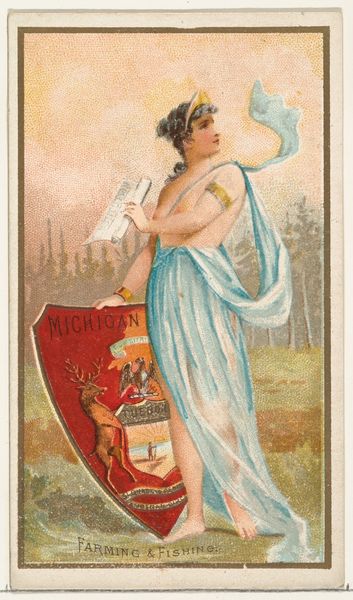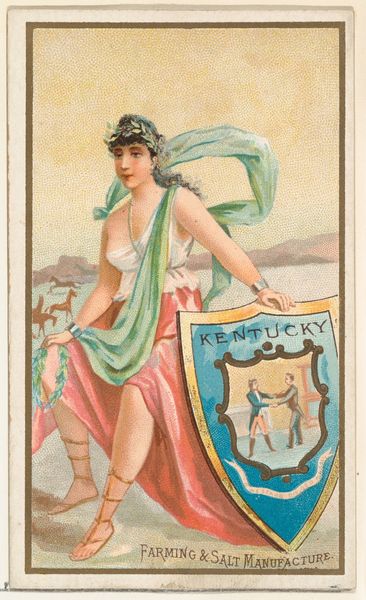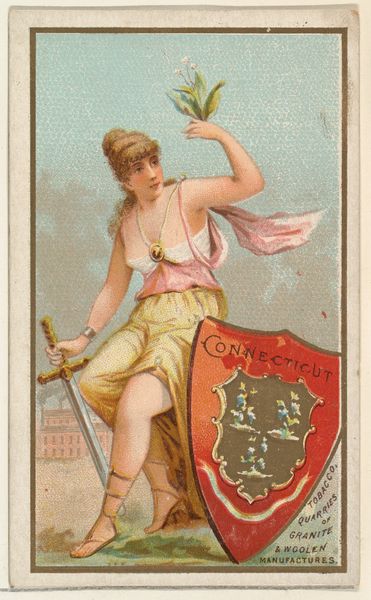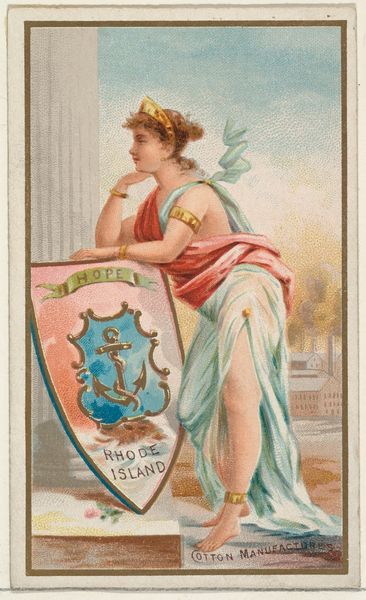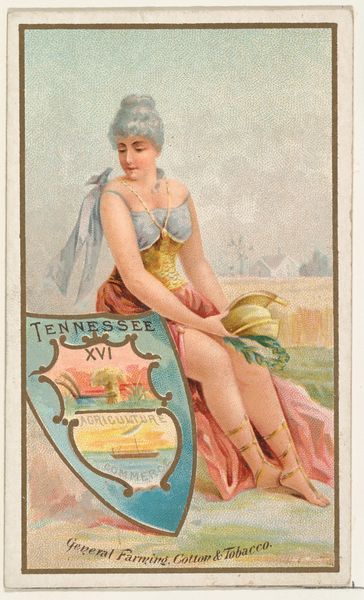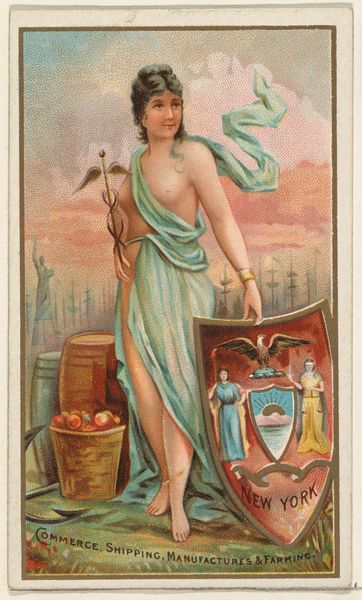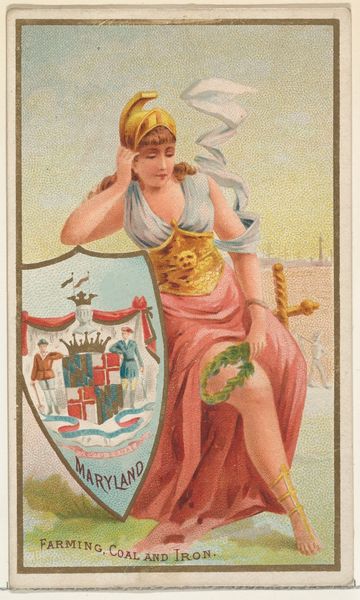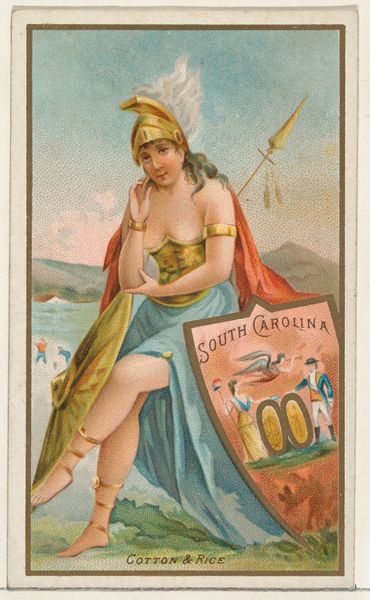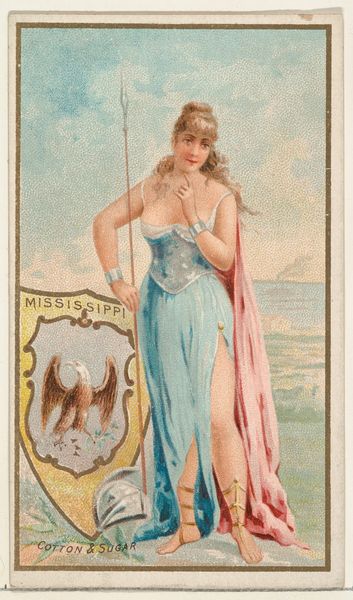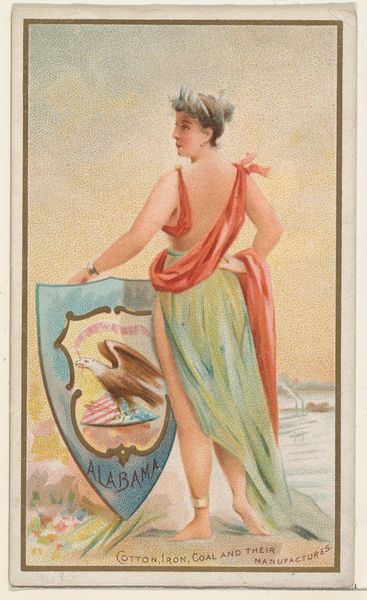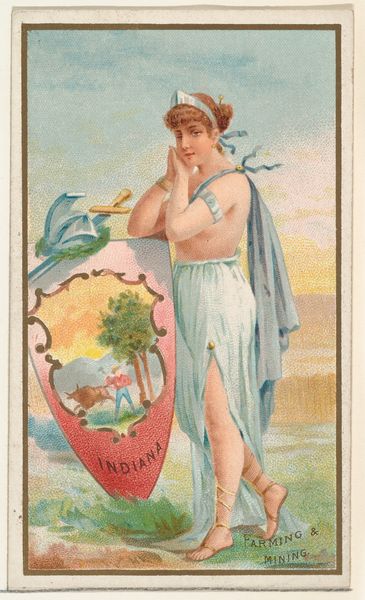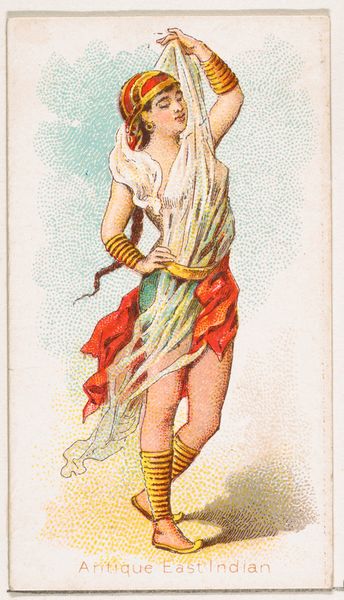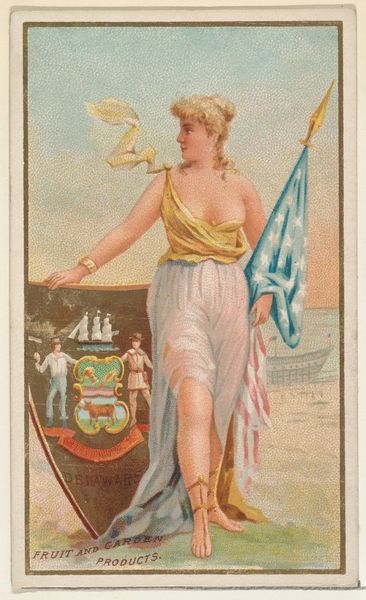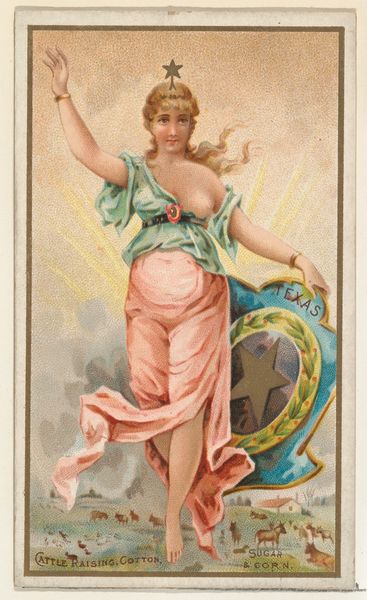
Massachusetts, from the Industries of States series (N117) issued by Duke Sons & Co. to promote Honest Long Cut Tobacco 1889
0:00
0:00
drawing, print
#
portrait
#
drawing
# print
#
female-nude
#
watercolour illustration
#
portrait art
Dimensions: Sheet: 4 3/16 × 2 1/2 in. (10.6 × 6.3 cm)
Copyright: Public Domain
Editor: This is “Massachusetts, from the Industries of States series,” created around 1889 by W. Duke, Sons & Co. It's a small print, originally a tobacco card, I think. I’m immediately struck by the allegorical figure and how she holds up the Massachusetts state shield. It feels… contradictory. What symbols stand out to you? Curator: Indeed, the figure is fascinating, embodying perhaps a classical ideal juxtaposed with burgeoning industrialism. She holds a shield displaying the state seal—an indigenous man, arrow in hand, under a star. Note the shift; early seals showed arrows pointing *down*, a sign of peace, then changed to point upwards. What emotional impact does that shift in direction have? Editor: So the change reflects a more assertive stance? How does the depiction of the Native American man fit into the context of American expansionism? Curator: Precisely. This image encapsulates a cultural tension. We see both an idealised vision of feminine beauty, industry in the background, and the appropriation of Indigenous imagery. These cards circulated widely. The question then becomes, what were consumers meant to glean from this assembly of symbols? How did the industry re-package history? Editor: I hadn’t considered the card’s wider circulation, so this image promoted both the state and a romanticized version of history, all to sell tobacco. That is striking. Curator: It's a potent example of how visual imagery reinforces cultural narratives, inviting a constant questioning of context. Considering what these symbols signified then versus now offers insight into the enduring power of images.
Comments
No comments
Be the first to comment and join the conversation on the ultimate creative platform.
